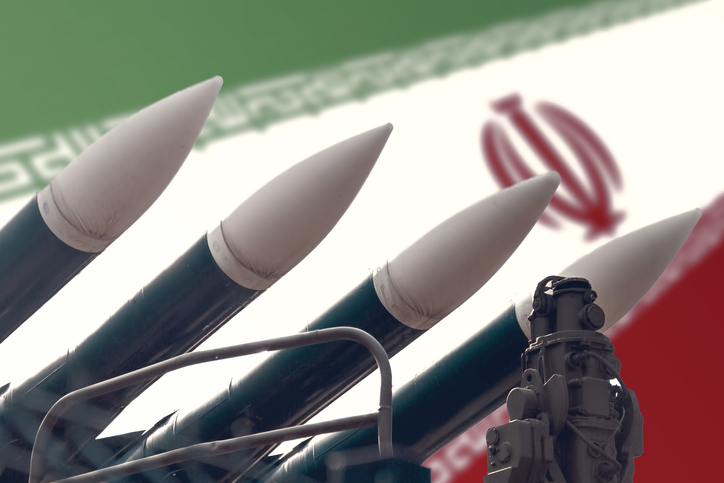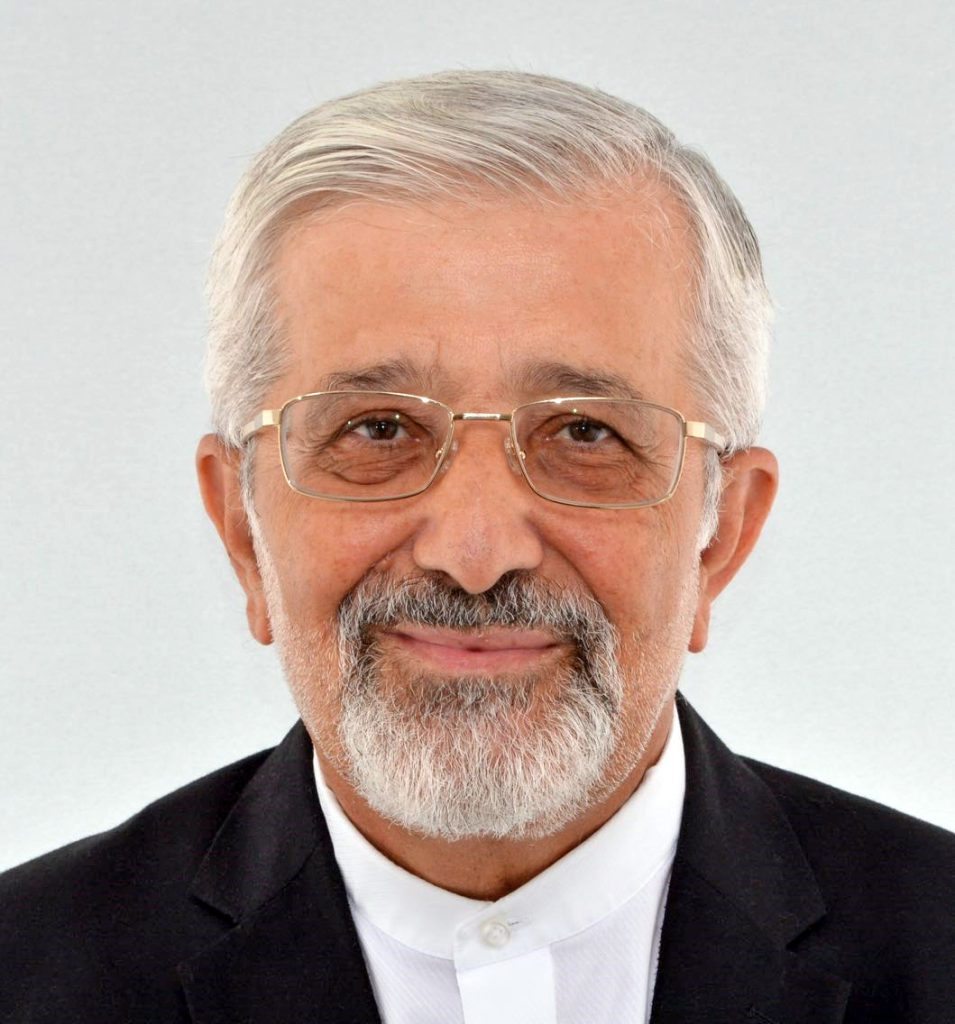On October 18, 2023, requirements set forth in the UN Security Council Resolution 2231 on the Iranian missile program and international cooperation with Tehran on this matter expired.
In this regard, PIR Center conducted an interview with H.E. Ambassador Ali Asghar Soltanieh, a nuclear scientist and multilateral diplomat, Permanent Representative of the Islamic Republic of Iran to the IAEA (1982-1987, 2006-2013), President of the Vienna International Institute for Middle East Studies (VIIMES), member of PIR Center Advisory Board. During the talk a wide range of issues on the JCPOA and Iran’s nuclear program was discussed.
H.E. Ambassador Ali Asghar Soltanieh is retired and expresses views in his personal capacity.
The interview was conducted by Veronika Terpugova, PIR Center Education & Training Program intern.
Veronika Terpugova: Even though Rosemary A. DiCarlo, the UN Under-Secretary-General for Political and Peacebuilding Affairs, confirmed the termination of all penalties against Iran under the Resolution 2231, the Council of the EU announced further unilateral sanctions against Iran’s ballistic missile program. They justified their decision by claiming that Iran had not complied with the 2015 nuclear agreement since 2019. What is your view on that and what reciprocal measures could be implemented by Iran? Are the EU countries to be considered violators together with the US now? Is the EU, as coordinator of the Joint Commission of the JCPOA, taking steps that go against the very resolution on which the JCPOA is based?
H.E. Ambassador Ali Asghar Soltanieh: I emphasize that I am retired and have no official responsibility. I express views in my personal capacity.
Iran has been in full commitment with the JCPOA and has been complying with it. It was the US that withdrew, and it was the EU that did not fulfil its obligations, and also was unable to compensate that serious shock by US to the whole JCPOA. They asked us for patience and not to react. For one year Iran showed, the so-called “strategic patience”. Unfortunately, the EU was not able even to establish and realize the INSTEX mechanism. They were totally unable to do anything to compensate at least partly so that Iran could digest the new reality. They did not appreciate that Iran respected them, instead they tried to create problems here and there. You can now see that they have been following the American “maximum pressure”. The US left the JCPOA and started imposing new sanctions, and the EU was following that move rather than neutralizing it. The EU has to be blamed for the status quo and possible ultimate collapse of the JCPOA.
As regards the Resolution 2231, I have my own portion of the criticism. I am of the view that Iran should not have made so much compromise on the JCPOA and even agreed with the Resolution 2231. The Resolution was supposed to consist of only two lines: the first one — to endorse the JCPOA, the second one – to eliminate the previous Resolution of the UN Security Council. If you look at this Resolution, which I think is a sign of dishonesty and hypocrisy of another party, specifically the United States, it includes additional Appendix, which has nothing to do with the nuclear issue. It contains provisions about military activities, specifically missiles. The EU has no right to complain about Iran because it was also not honest. While Iran was so cooperative and compromising on the JCPOA and the many in the whole world appreciated it, they proposed the text of Resolution 2231, deviating from the gentleman agreement to focus merely on the nuclear issue. One could feel hypocrisy in their attitude and conduct. My colleagues in charge of the negotiations tried to digest the situation and take it quietly so as not to lead to public outrage. Otherwise, we could have immediately said that either the Resolution should be eliminated or Iran will withdraw from the JCPOA. Iran was polite enough not to react immediately to the adoption of the Resolution but they, on the contrary, raise the issue each time Iran tests a missile, which is 100% legitimate. As a matter of fact, by bringing up disputable issues they themselves threatened the future of the JCPOA. Each time that they raise the issue of our legitimate right to missiles, they influence the future of the JCPOA.
I want to finalize with this important point: nobody has shown me any legally binding internationally recognized instrument on the prohibition of missiles. Everything Iran is doing on missiles is legitimate, according to all international laws. The EU and the West at large do not have the right and they cannot question it. The Resolution 2231 says that Iran should not have any activities related to ballistic missiles capable of carrying nuclear warheads. The Resolution lacks any technical definitions and criteria as well as who is going to verify, and what the verification mechanism is. There are a lot of ambiguities. Apart from the concerns regarding the very existence of the Resolution 2231, its content has a lot of legal and technical deficiencies and thus is not implementable.
This negative stance has even further damaged the EU’s credibility and reliability as an interlocuter. Both the US and the EU have lost their credit. Iran cannot trust neither the US, as usual, nor the EU, which Iran used to trust. The EU’s harsh position on Iran after the expiry of the clause on missiles, has one clear message: EU intends to continue provocations, otherwise they should respect their own Resolution which stipulates some expiry dates.
Veronika Terpugova: On July 3, 2023, Foreign Ministry spokesman Nasser Kanani warned European powers that Iran will deliver a “balanced and proportional” response if Europe refuses to lift sanctions, meaning that this will likely result in a ramping up of Iran’s nuclear program and an abandonment of the self-imposed limit on the range of its missiles. The IAEA November meeting proved that the nuclear program is developing, though at a slower pace. What do you think about the development of Iran’s ballistic missile program?
H.E. Ambassador Ali Asghar Soltanieh: First of all, I repeat that there is no international legally binding instrument on missiles. This is Iran’s legitimate right. We are against nuclear weapons and we have never gone to them. After 20 years all allegations proved false, no “smoking gun”!
Iran would never suspend its missile activities because this is the only defense instrument for the national security. In the Iraqi imposed war on Iran, about 86 countries, including European countries and specifically the US, were fully supporting Saddam Hussein. I was at the war front as a volunteer, witnessing how my fellow citizens were killed. They provided him arms including missiles. He bombarded cities with hundreds of missiles, killing thousands of civilians. I am sure that if a pole is conducted over 90% of Iranian society would support the continuation of the missile program. We need missiles as a deterrence factor and we will use them to protect the Iranian nation if attacked. Missile program development will continue without any interruption — more precision, more accuracy. The whole world should know that Iran will not ignore any sort of aggression and will immediately react. Yet again, this is exclusively for defense.
It doesn’t have any relation to the nuclear program. The nuclear issue was under the JCPOA, and we are still a party to the NPT, we are still under the robust verification of the IAEA. With the Trump administration withdrawing from the JCPOA and the EU doing nothing to bring the US back, we had the right, under the Article 36 of the JCPOA, to reduce some of the voluntarily obligations. Whatever Iran has reduced under the JCPOA provisions has nothing to do with the NPT Comprehensive Safeguards Agreement (INFCIRC/214), which we are fully complying with.
Veronika Terpugova: According to media, senior Iranian officials said top nuclear negotiator Ali Baqeri-Kani is ready to meet with White House Coordinator for the Middle East and North Africa Brett McGurk in Oman. This year Oman has already contributed to the indirect dialogue between the US and Iran. Since a direct meeting between Iranian representatives and their American counterparts would greatly facilitate searching common ground, how probable is it at this point?
H.E. Ambassador Ali Asghar Soltanieh: Iran has never left the negotiating table. Two years ago, at his first press conference, Dr. Raisi, the new elected president, said that although the JCPOA was negotiated and finalized by the previous government, the Islamic Republic of Iran is committed to it, therefore we respect it. That is why they immediately started negotiations in Vienna to find a way so that the JCPOA is fully implemented by every party.
The US was not a party to the JCPOA, therefore its delegation was seated in another hotel during this phase of negotiations. Iran again showed its goodwill and political will, looking forward to the possible revival of implementations by all parties, but the Biden administration made a strategic mistake by thinking that it could use the leverage of the Trump administration to take more advantage of Iran or to put more pressure on it. The new process was supposed to “go backwards”. That means that the sanctions which were imposed after Trump’s withdrawal would be stopped, but the US did not do that. They prolonged the negotiations and did not immediately stop those sanctions. Therefore, they should be blamed for what has happened.
However, Iranians still say that if there are any possibilities that we can find a way and means to go backwards, we are ready. Yet there is a “but”: the experience of Iran has been bitter because of how the US easily went out of the JCPOA without any accountability. Iran wants a guarantee from the government of United States. They should give an assurance and a guarantee that they will not withdraw again, will not impose sanctions. Now we have a lot of progress, not only in the field of enrichment, but also in the field of related technology. Going back to the JCPOA of 2015 means that we are going in a negative direction and we are losing everything which we have achieved since then. What happens if one year later the new administration comes to the White House and goes out of the agreement again? Firstly, we want the guarantee. Secondly, we want a verification mechanism that the sanctions are indeed removed and transactions are realized without any impediments. I recall that even when Obama was in power and the JCPOA was already signed, many sanctions were not really suspended or removed, and the Iranian negotiating team was complaining, “What’s going on? You promised to lift the sanctions, but they are still there.” Therefore, this is a serious acute problem. In a nutshell, Iran has a legitimate expectation to be assured that the sanctions are totally removed and the scenario will not be repeated.
Veronika Terpugova: On November 24, 2023, Russia’s Permanent Representative to International Organizations in Vienna Mikhail Ulyanov urged the US and the E3 countries to rejoin the JCPOA instead of impeding Tehran’s collaboration with the IAEA. Is there a future for the JCPOA given that the previous rounds of talks did not manage to reach any joint resolution? To what extent does the situation with the sanctions imposed at the national level affect the prospects for restoring the JCPOA?
H.E. Ambassador Ali Asghar Soltanieh: I’ve always said that sanctions are against the United Nations Convention Against Corruption. Personally, I am against sanctions against any country, including Russia, because this creates corruption. Both countries, the one that imposes sanctions and the one on which they are imposed, have to find a way to circumvent the normal internationally recognized law and regulation, therefore it creates corruption. It also hurts people, like it has hurt many Iranian patients who could not receive medicine, specifically during the COVID-19 pandemic because of the sanctions.
I have to confess that we have lived with the sanctions for over 40 years and we know how to circumvent them. The new government is successful, since even with the sanctions it now exports millions of barrels of oil, which is much more than during the times of the JCPOA. We are not stuck or paralyzed. However, in order to show its political will and to have a better mutual understanding, Iran still opts to continue the negotiations for an amicable solution.
As regards the problem with the IAEA, we have to make a distinction between the NPT safeguards and the obligations under the JCPOA. In spite of the most intrusive inspections for over 20 years the IAEA has not found any evidence of diversion of nuclear material for military purposes, and the continuous reports of the former and current Directors General have confirmed that, but the nuclear file has been kept open. Why? Because each time Iran works closely with the IAEA inspectors and they agree that the file should be closed, the United States immediately brings up another allegation. These continuous allegations, which prove to be baseless, keep the file open. I strongly believe, it is time to send a crystal clear message, “Enough is enough.” They should stop this politically motivated destructive game. The file should be closed so as to create a new conducive environment and let us show again more compromise and flexibility. You cannot keep the file open, continue with the sanctions, and ask to come back to the JCPOA. It’s impossible. Neither intellectuals in Iran, nor the parliament, nor Iranian citizens will accept that.
We really want to understand each other. The US should listen to us, the Europeans should listen to us as well, and of course we should express our concerns. If we can find a way out, why not? Otherwise, the situation is at ease. When I had the honor to represent my country as Ambassador, I declared in several interview that neither will we go to nuclear weapons, nor will we stop our enrichment, and we will continue the advancement of our centrifuge machines every second — nobody or nothing could stop that, even a military threat. Particularly in 2009 and 2010, when there was a threat of attack against Iranian nuclear facilities, I said that since we have the indigenous centrifuges technology and know-how and since Iran is a vast country, we could easily find other suitable place to install our centrifuges, therefore if the site of centrifuges, which is under the IAEA 24/7 surveillance, is attacked, safeguards cameras and control, then new centrifuges will disappear, nobody, including the IAEA inspectors, will see where they are and enrichment will continue and even accelerate without interruption. When our nuclear scientists were assassinated by the Israelis, our nuclear activities accelerated. They should have learnt the lesson by now.
The nuclear program has become a sort of a national pride for Iranians with thousands of years of civilization. We have paid a heavy political price for it, therefore we will not give it up. However, Iran is willing to continue to make sure that everything is under the IAEA control and exclusively for peaceful purposes.
Veronika Terpugova: On November 23, 2023, Director General of the IAEA Rafael Grossi claimed that Iran had ceased to implement lots of aspects and nuclear related obligations under the JCPOA and it was not implementing mutually agreed additional measures under the joint statement of March 4. Its stockpiles of uranium enriched up to 5%, 20%, and 60% have all increased since September, with the increase of the 60% continuing at the same rate. Could you comment on that, please?
H.E. Ambassador Ali Asghar Soltanieh: With 40 years of experience of working with the IAEA inspectors, as Head of National Escort Team as well as Iran’s Permanent Representative to the IAEA for 12 years, I strongly criticize what’s happening in the IAEA. According to the Statute, the Secretariat, including the Director General, have no right to say anything — just to report the result of the verification of declarations of its Member States. They are not allowed to pass judgment, express concern or question why a certain country, for example Iran, is enriching uranium to a certain level, 20%, 60% or even more, since there is no limit in the IAEA Statute and in the NPT. The inspectors should only come and verify the declarations of a Member State.
For 12 years the Non-Aligned Movement Member States have been continuously supporting Iran through the statements delivered at the meetings of the IAEA Board of Governors, which are well documented. They have emphasized that voluntary measures should not be transferred or changed to obligatory measures. In this context the obligations under the Comprehensive Safeguards Agreement and the JCPOA have to be distinct.
The sooner the IAEA gives up these baseless allegations and closes its files, the more conducive and cooperative environment shall prevail. In such circumstance if US agrees to go back to the JCPOA and comply with its full obligations, then Iran could then find a cooperative solution. In my opinion, Iran cannot go back to 2015 with the ceiling of 300 kg of enriched uranium, back to square one! Now we have huge stockpiles of material enriched up to 20% and 60% and advanced centrifuge machines. Iran cannot throw them in the garbage or send them abroad. We’ve spent a lot of money and time and we’ve paid a heavy political price for it. My personal suggestion is that they could go to the previous ceiling of the JCPOA where the additional enriched uranium and additional advanced centrifuge machines be put under the seals of the IAEA. If they break their promise again, if they do not fulfill their obligations, if they impose sanctions, then Iran could immediately cut off the seals and restart its enrichment activities.
Key words: Iran, IAEA, Nuclear Nonproliferation; Nuclear Weapon; Global Security
NPR/IR



